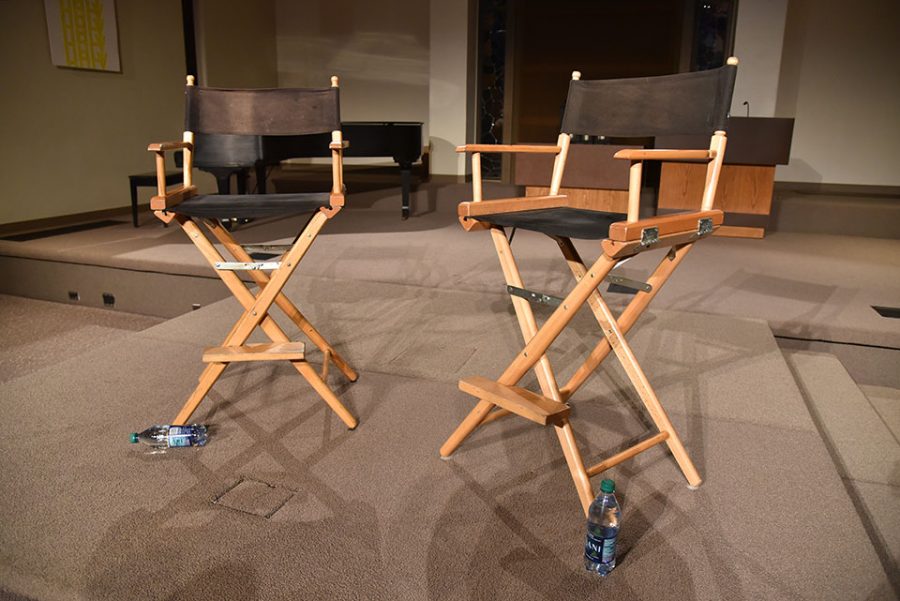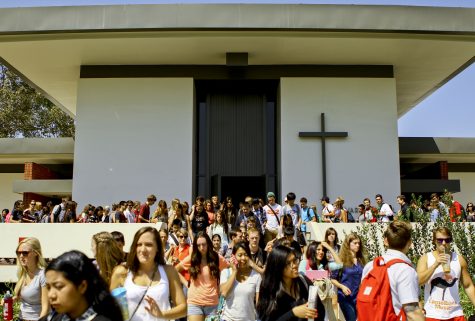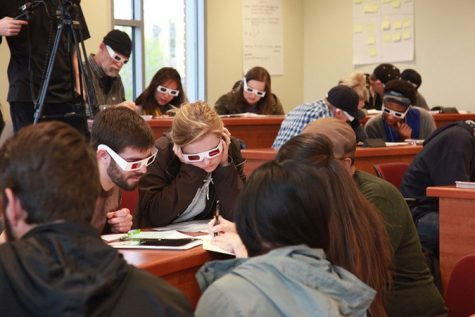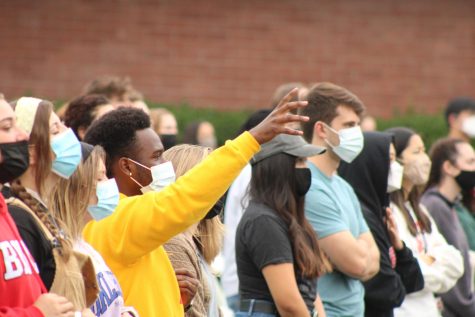Shame has no place
Joy breaks through tragedy in the story of a Columbine High School shooting victim.
Students and professors seek to find the compromise between artistic expression and community expectations in Biola’s Cinema Media Arts department.
March 22, 2017
Gunshots echo through a quiet campus. The goings-on of an average school day are violently interrupted as two familiar figures march through the school on a killing spree. In the midst of the horror story of Columbine, the story of one girl in the crowd is often forgotten.
Delving into Scott’s story
Two high school students planned for months to invade the school they attended with heavy artillery and the intent of killing a specific list of students — and anyone who got in their way. Beginning the massacre was the murder of an outspoken Christian student named Rachel Joy Scott.
In a daring live action reenactment of that fateful day, Brian Baugh directed a film titled “I’m Not Ashamed,” the screening of which occurred on Biola’s campus Wednesday, March 22. When approached with the concept of delving into the story of Rachel Joy Scott, Baugh understood the gravity of the situation at hand.
“It was a real joy to work with Rachel’s family, and in a sense to serve them and try to bring to life some long-time goals they had had with trying to redeem that, and the horrors that had happened to Rachel,” Baugh said.
As simple as it seems to any audience member to craft a story from a collection of journals left behind by the victim of a tragedy, Baugh took on the task with intention and detail-orientation. He explained how, during the writing process, he was on the phone with Scott’s mother almost every day.
“You have to ask those horrible questions, like ‘What did you do? What happened when she died? What were you doing?’ Or just wanting to get the truth out of it, because that’s where the power lies,” Baugh said.
creating moments of joy throughout experience
Though his faith played a role in the creation of the film, Baugh stresses the importance of making an entertaining story without relying on the aspect of Christianity to drive the story. His priority in creating the film was respecting Scott’s family, over his own agenda of producing self-identifying work.
“[My faith] informs all areas of my life, so this just is work. Not to over-spiritualize anything, but I guess I just see it as infecting every area, but not in the overbearing way,” Baugh said. “In some sense, do you want it to represent our role, or do you want it to represent the family of what you’re doing the story about?”
The purpose of the film is obviously redemption — a common theme in works of entertainment centered around the Christian faith. However, the solidarity formed through surrounding communities is a bright side the darkness of the circumstances cannot ignore.
“I didn’t want to betray it, but just to create moments of joy throughout the experience. Then, ultimately, I think the most important part is you want to leave this with hope and with a sense that the horrors in a small part have been redeemed and have been — in some small ways — used to bring good,” Baugh said.







